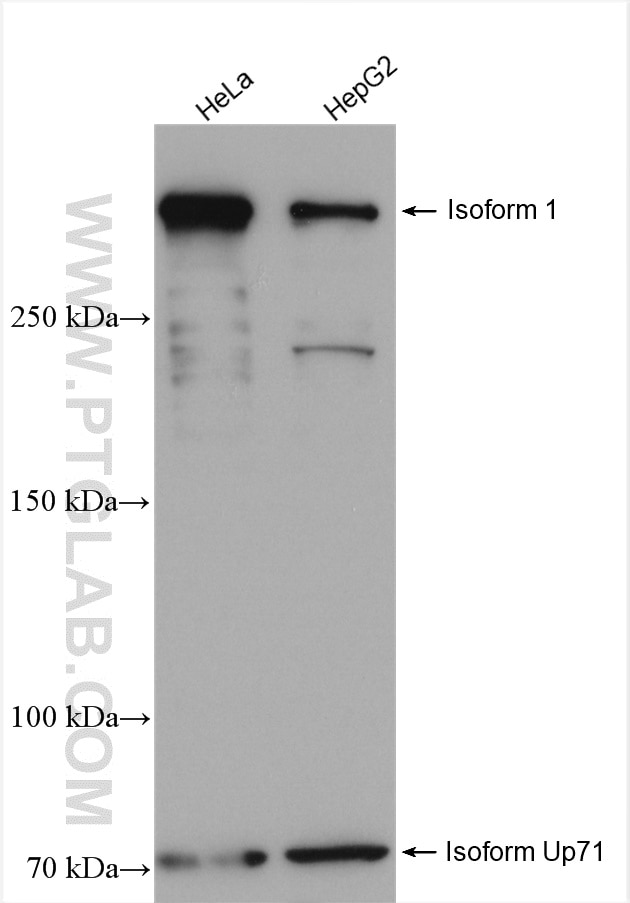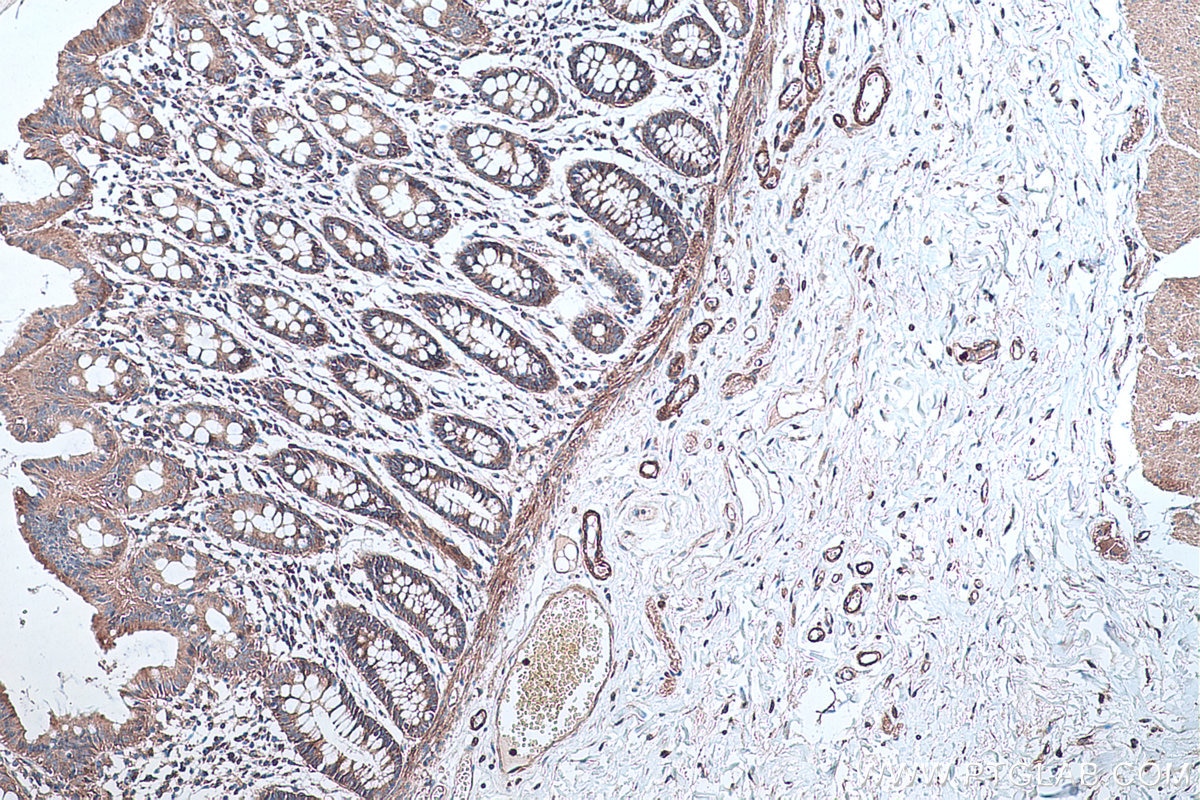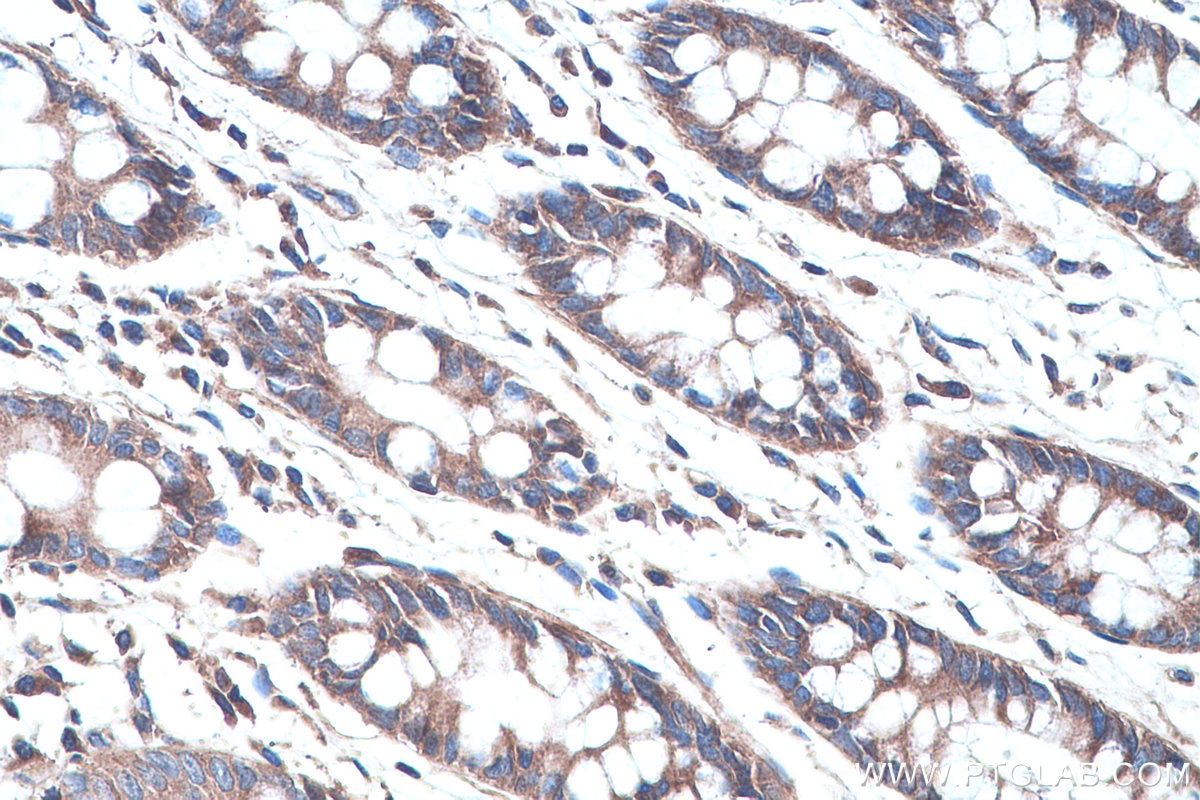Tested Applications
| Positive WB detected in | HeLa cells, HepG2 cells |
| Positive IHC detected in | human colon tissue Note: suggested antigen retrieval with TE buffer pH 9.0; (*) Alternatively, antigen retrieval may be performed with citrate buffer pH 6.0 |
Recommended dilution
| Application | Dilution |
|---|---|
| Western Blot (WB) | WB : 1:500-1:2000 |
| Immunohistochemistry (IHC) | IHC : 1:1000-1:4000 |
| It is recommended that this reagent should be titrated in each testing system to obtain optimal results. | |
| Sample-dependent, Check data in validation data gallery. | |
Product Information
27948-1-AP targets UTRN in WB, IHC, ELISA applications and shows reactivity with Human samples.
| Tested Reactivity | Human |
| Host / Isotype | Rabbit / IgG |
| Class | Polyclonal |
| Type | Antibody |
| Immunogen | UTRN fusion protein Ag27497 Predict reactive species |
| Full Name | utrophin |
| Calculated Molecular Weight | 395 kDa |
| Observed Molecular Weight | 394 kDa, 70 kDa |
| GenBank Accession Number | NM_007124 |
| Gene Symbol | UTRN |
| Gene ID (NCBI) | 7402 |
| RRID | AB_2881018 |
| Conjugate | Unconjugated |
| Form | Liquid |
| Purification Method | Antigen affinity purification |
| UNIPROT ID | P46939 |
| Storage Buffer | PBS with 0.02% sodium azide and 50% glycerol pH 7.3. |
| Storage Conditions | Store at -20°C. Stable for one year after shipment. Aliquoting is unnecessary for -20oC storage. 20ul sizes contain 0.1% BSA. |
Background Information
Utrophin is a large protein (395 kDa) which is widely expressed and most abundant in several non-skeletal muscle tissues, for example lung, intestine, embryonic neural tube, sensory ganglia, tendons and ossifying cartilages. Two alternate intronic transcripts of utrophin have been described: Up71 and Up140.
Protocols
| Product Specific Protocols | |
|---|---|
| WB protocol for UTRN antibody 27948-1-AP | Download protocol |
| IHC protocol for UTRN antibody 27948-1-AP | Download protocol |
| Standard Protocols | |
|---|---|
| Click here to view our Standard Protocols |







